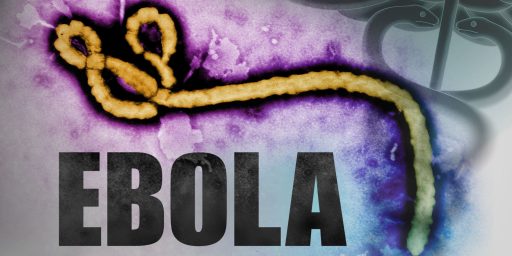Finding E.coli Source Proving Difficult
Steven L. Taylor
·
Monday, June 6, 2011
·
2 comments
Via the BBC: E. coli outbreak: First tests from German farm negative
"Investigations are continuing," Lower Saxony’s agriculture ministry said on Monday as it announced that the first tests had proved negative.
It added that it did not expect "any short-term conclusions".

About Steven L. Taylor
Steven L. Taylor is a Professor of Political Science and a College of Arts and Sciences Dean. His main areas of expertise include parties, elections, and the institutional design of democracies. His most recent book is the co-authored
A Different Democracy: American Government in a 31-Country Perspective. He earned his Ph.D. from the University of Texas and his BA from the University of California, Irvine. He has been blogging since 2003 (originally at the now defunct Poliblog).
Follow Steven on
Twitter




This is a massive outbreak. To put it in context, the last big US outbreak had 199 cases.
The source is food or drink commonly consumed in northern Germany. It has to be, given the huge number of cases. My first guess is a contaminated drinking water supply. Don’t know if beer can transmit E. coli but that has to be a guess.
Vast majority of German cases are in adults, and most are women. The source is something that German adults consume disproportionately to German children, and is preferred slightly more by German women than German men.
As it works out this is a hot topic among homebrewers. The best knowledge at this point is that beer is pretty darned inhospitable to e. coli. Hops has anti-bacterial properties and the pH is enough to kill of the bacteria.
I suppose anything is possible but I suspect we’ll utlimately find some source other than beer. I’m guessing fresh produce. Speciffically, who knows?